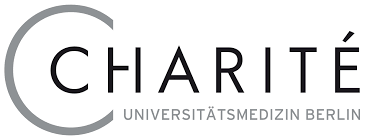
Institute of Microbiology, Infectious Diseases and Immunology
Mysm1 is a decision checkpoint regulator of Group2 innate lymphoid cell biology
Whereas successfully applied vaccination strategies and improved hygiene standards have led to a significant reduction of infectious diseases within the last hundred years, chronic diseases including asthma, asthma exacerbations but also allergies are rapidly increasing. Group 2 innate lymphoid cells (ILC2s) are a recently identified member of innate lymphoid cells and represent the innate counterpart of T helper 2 cells (Th2) of the adaptive immune system. Importantly, ILC2s are innately committed to type 2 immunity: ILC2s are fast and strong actors and able to secrete large amounts of signature cytokines within a short time period. Thereby ILC2s are able to amplify but also direct early immune responses and thereby orchestrate innate but also adaptive immunity. Importantly, ILC2 activity can be beneficial for the host by supporting defence mechanisms against helminth infections but are as well able to trigger immunopathology such as respiratory inflammation. However, the underlying regulatory mechanisms of this immunopathology are still poorly understood. To be able to counter deregulated type 2 immunity, a better understanding of ILC2 biology is needed to identify novel targets of clinical interest. Myb-like, SWIRM, and MPN domains (Mysm1) is a DNA binding protein with deubiquitinase activity. Interestingly, Mysm1 activity has been linked to several transcriptional determinants important for ILC2 development and function. We therefore aim to decipher the regulatory role of Mysm1 for ILC2 development as well as to investigate the importance of Mysm1 for ILC2 restrain in the periphery. We will use transgenic mouse models, multicolour phenotyping, novel imaging techniques and ex vivo and in vivo models of type 2 immune responses to propel this project forward. The here presented project will provide critical and fundamental insights in regulatory processes of ILC2 biology. Moreover, novel molecular targets of ILC2 biology will be revealed which will be of interest for the development of therapeutic strategies to counter deregulated Type 2 immune responses.